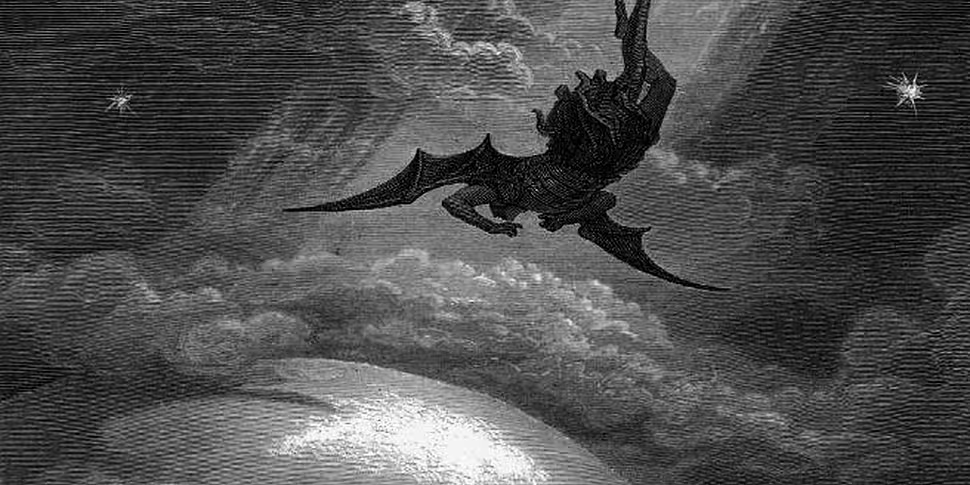Farewell, happy fields,
Where joy for ever dwells! Hail, horrors! hail,
Infernal world! and thou, profoundest Hell,
Receive thy new possessor—one who brings
A mind not to be changed by place or time
The mind is its own place, and in itself
Can make a Heaven of Hell, a Hell of Heaven.
- Satan in John Milton’s ‘Paradise Lost’
The mid-17th century was one of the most tumultuous in English history. Spurred on by sectarian tensions and political tensions the country devolved into a savage civil war between the Parliamentary Roundheads and the Royalist Cavaliers. For nine long years these forces battled across England, Ireland, and Scotland, leaving the local populations devastated.
With Oliver Cromwell’s eventual victory at the head of the Roundhead New Model Army the political landscape was radically altered. A supposedly divinely appointed king had been executed by the people and, though Cromwell would lay his tyrannical hand on the tiller, the seeds of democracy had been well planted and watered. One of the leading radical thinkers of the time, and a strong supporter of the Commonwealth and Cromwell’s Protectorate, was the Londoner, John Milton.
Possessed by radical ideals he defended the beheading of Charles I, advocated for religious toleration, parliamentary right, personal freedoms, and divorce. As England began its chaotic transition back to a monarchy with Cromwell’s death in 1658 Milton refused to be silent; choosing instead to flee when Charles II was restored to the throne in 1660. Though a general pardon was issued Milton, as an official advocate of Cromwell and the Commonwealth, was arrested.
Despite being short lived Milton’s imprisonment marked a change his life. He had lost many political allies and friends in the upheaval and the favour that he had enjoyed under Cromwell had become replaced by antipathy by the new king and his court. By the time of his death in 1674 he was no longer the political behemoth of his youth but an unrepentant, impoverished, radical. It was during these years of hardship that he wrote his best works though.
The greatest of these is without a doubt the epic poem, ‘Paradise Lost’. Recounting Satan’s fall and man’s expulsion from Eden this work brought the denizens of hell and paradise to life in a manner that challenged, and many would say surpassed, the great Dante Alighieri. Milton infused Satan with a charisma and humanity that had never existed before. His account of the angels’ rebellion and fall from grace have inspired countless authors and artists and become the popular rendition of this biblical tale.
Susan looks back on the life and writings of John Milton with Neil Forsyth and Danielle Clarke. How radical were his philosophies? What was life like for him during the turbulent 17th century? Did he make Satan into the first ever anti-hero? How did he recast the traditional tale of Adam and Eve? And was his ‘Paradise Lost’ a reflection on the English Civil War?
‘The Organised Mind’
Before this Susan talks with Daniel J Levitin about his latest book, ‘The Organised Mind’, and the lessons it teaches us for living in the modern day. A psychologist and neuroscientist Daniel made a name for himself with his work on music and its connections and impact on the human mind. ‘The Organised Mind’ steers clear of Daniel’s much loved world of music to focus on what we can do to keep a clear and focused head in a world awash in information.
Subtitled ‘Thinking Straight in the Age of Information Overload’ this bestseller explores how the growing access to information, aided by the internet and ever improving technology, is impacting on our mind. Far from improving our general cognitive functions Daniel argues that we are losing out as our mind tries to cope with the constant barrage of emails, information, and social network notifications.
One of the biggest issues according to Daniel’s book is our attempts to multi-task. Instead of optimising our output Daniel says this splitting of our focus makes us perform far less and it’s better that we tackle one problem at a time. Fundamental to his argument is the idea of organising our lives so that our thinking is made that little bit easier.
Join Daniel as he talks with Susan about how best to optimise our mental output. Why is organisation so key to our mental performance? What happens to our mind if we try to do too many things? Why is ‘turning off’ so important? And what can we do to make our daily life and performance better?
This week's music to read to
Jonathan Kirkscey's 'Only Child', our only piece of music this week, opens and closes this show.









